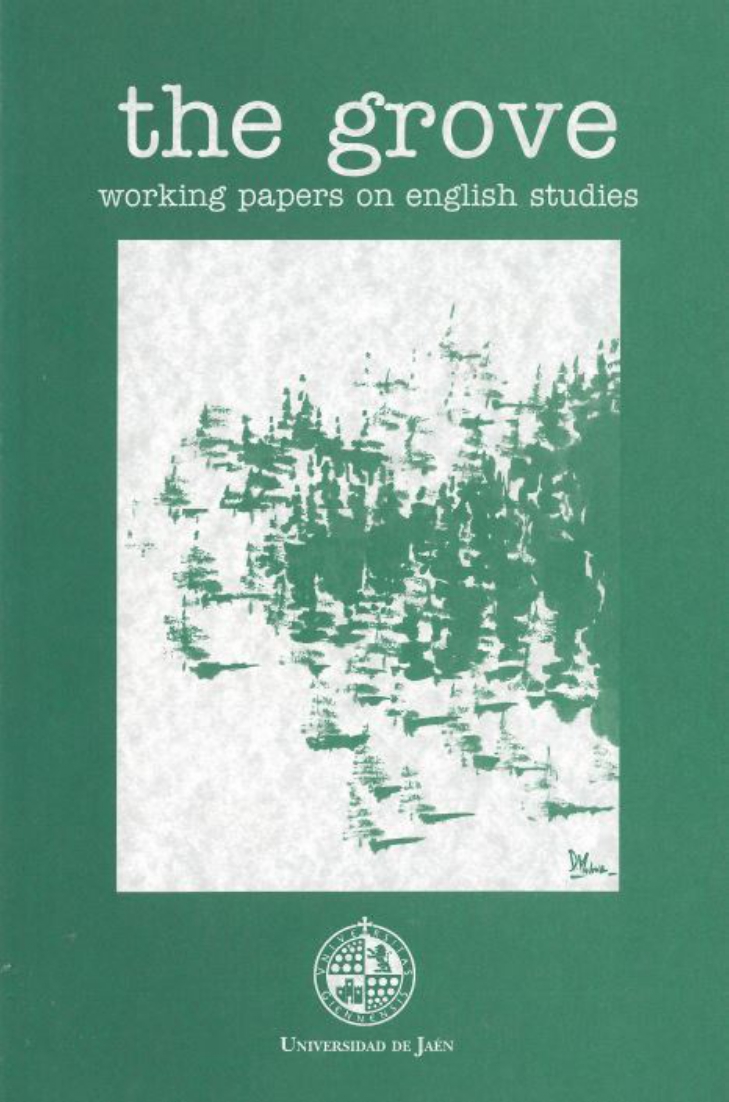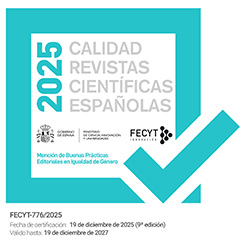Students' Perception of Social Contextual Variables in Mitigating Email Requests
DOI:
https://doi.org/10.17561/grove.v29.6644Keywords:
email requests, imposition, mitigation, perception, power, social distanceAbstract
Given the power imbalance between students and faculty members, many studies on email communication have focused on how email requests are performed in an academic setting. Research has illustrated that power-incongruent emails can lead to pragmatic failure and cause a negative effect on the email recipient. The present study explores how contextual variables, such as social distance, power and imposition are perceived by EFL students in three different situations in an academic context. Moreover, the study examines the degree of request mitigation performed by learners to adjust to these social contextual variables. Findings reveal that learners seem to be aware of social contextual variables, but they do not appear to mitigate email requests accordingly.
Downloads
References
Alcón-Soler, Eva. “Instruction and pragmatic change during study abroad in email communication.” Innovation in Language Learning and Teaching, vol. 9, no. 1, 2015, pp. 34-45. http://doi.org/10.1080/17501229.2014.995763
Alcón-Soler, Eva. “Mitigating email requests in teenagers’ first and second language academic cyber-consultation.” Multilingua, vol. 32, no.6, 2013, pp. 779-799. https://doi.org/10.1515/multi-2013-0037
Biesenbach-Lucas, Sigrun. “Students writing emails to faculty: An examination of e-politeness among native and non-native speakers of English.” Language Learning & Technology, vol. 11, no. 2, 2007, pp. 59-81. http://llt.msu.edu/vol11num2/biesenbachlucas/
Brown, Penelope and Stephen C. Levinson. Politeness. Some Universals in Language Usage. Cambridge, Cambridge University Press, 1987. https://doi.org/10.1017/CBO9780511813085
Codina-Espurz, Victoria and Patricia Salazar-Campillo. “Student-to-Faculty Email Consultation in English, Spanish and Catalan in an Academic Context.” Investigating the Learning of Pragmatics across Ages and Contexts. Eds. Patricia Salazar-Campillo and Victoria Codina-Espurz. Leiden, Brill. 2019, pp. 196-217. https://doi.org/10.1163/9789004409699_010
Chen, Xuewei, Lu Yan, Qiang Chang and Zohreh Eslami. “Pragmatic usage in academic email requests: A comparative and contrastive study of written DCT and email data.” Ligue e Linguaggi, vol. 13, 2015, pp.75-85. http://doi.org/10.1285/i22390359v13p75
Chen, Yuan-Shan. “Developing Chinese EFL learners’ email literacy through requests to faculty.” Journal of Pragmatics, vol.75, 2015, pp. 131-149. https://doi.org/10.1016/j.pragma.2014.05.009
Cohen, Andrew D. and Rachel L. Shively. “Acquisition of requests and apologies in Spanish and French: Impact of study-abroad and strategy-building intervention.” The Modern Language Journal, vol. 91, 2007, pp. 189-212. https://doi.org/10.1111/j.1540-4781.2007.00540.x
Czerwionka, Lori. “Mitigation: The combined effects of imposition and certitude.” Journal of Pragmatics, 44, 2012, pp. 1163-1182. https://doi.org/10.1016/j.pragma.2012.05.002
Deveci, Tanju and Ikhlas Ben Hmida. (2017). “The request speech act in emails by Arab university students in the UAE.” Journal of Language and Linguistic Studies, vol. 13, no.1, 2017, pp. 194-214.
Economidou-Kogetsidis, Maria. “Please answer me as soon as possible: Pragmatic failure in non-native speakers’ email request to faculty.” Journal of Pragmatics, vol. 43, 2011, pp. 3193-3215. https://doi.org/10.1016/j.pragma.2011.06.006
Economidou-Kogetsidis, Maria. “Teaching email politeness in the EFL/ESL classroom.” ELT Journal, vol. 69, no. 4, 2015, pp. 415.424. https://doi.org/10.1093/elt/ccv031
Economidou-Kogetsidis, Maria. “Variations in evaluations of the (im)politeness of emails from L2 learners and perceptions of the personality of their senders.” Journal of Pragmatics, vol. 106, 2016, pp. 1-19. https://doi.org/10.1016/j.pragma.2016.10.001
Economidou-Kogetsidis, Maria. “Mr Paul, please inform me accordingly. Address forms, directness and degree of imposition in L2 emails.” Pragmatics, vol. 28, no. 4, 2018, pp. 489-515. https://doi.org/10.1075/prag.17025.eco
Eslami, Zohreh R., Azizullah Mirzaei and Shadi Dini. “The role of asynchronous computed mediated communication in the instruction and development of EFL learner’s pragmatic competence.” System, vol. 48, 2015, pp. 99-111. https://doi.org/10.1016/j.system.2014.09.008
Faech, Claus and Gabrielle Kasper. “Internal and External Modification in Interlanguage Request Realizations.” Cross-cultural Pragmatics. Eds. Shoshana Blum-Kulka, Julianne House and Gabrielle Kasper. Norwood, NJ, Ablex Publishing Corporation, 1989, pp. 221- 247.
Félix-Brasdefer, J. César. “E-mail Requests to Faculty.” Interlanguage Request Modification. Eds. Maria Economidou-Kogetsidis and Helen Woodfield. Amsterdam, John Benjamins, 2012, pp. 87-118. https://doi.org/10.1075/pbns.217.04fel
Hartford, Beverly S. and Kathleen Bardovi-Harlig. “At your earliest convenience: A study of written student requests to faculty.” Pragmatics and Language Learning. Monographic Series, vol. 7. Ed. Lawrence. F. Bouton. Urbana-Champaign, IL, DEIL, 1996, pp. 55-71.
Hashemian, Mahmood and Maryam Farhang-Ju. “Applied linguistics faculty members’ perception of (im)politeness and (in)appropriateness of L2 learners’ email requests”. Journal of Teaching Language Skills (JTLS), vol. 38, no.1, 2019, pp. 119-155.
Hassall, Tim. “Modifying requests in a second language”. IRAL- International Review of Applied Linguistics in Language Teaching, vol. 39, no.4, 2001, pp. 259-283. https://doi.org/10.1515/iral.2001.005
Herring, Susan C. “Computer-mediated Discourse.” The Handbook of Discourse Analysis. Eds. Deborah Schiffrin, Deborah Tannen and Heidi Hamilton. Oxford, Blackwell Publishers. 2001, pp. 612-634. https://doi.org/10.1002/9780470753460.ch32
Lewis-Jones, Jenny and Victoria Mason. “Understanding style, language and etiquette in email communication in higher education: a survey”. Research in Post-Compulsory Education, vol.19, no.1, 2014, pp. 75-90. https://doi.org/10.1080/13596748.2014.872934
Márquez Reiter, Rosina. Linguistic Politeness in Britain and Uruguay: A Contrastive Study of Requests and Apologies. Amsterdam, John Benjamins. 2000. https://doi.org/10.1075/pbns.83
Pan, Ping Cathy. “Interlanguage Requests in institutional E-mail Discourse.” Interlanguage Request Modification. Eds. Maria Economidou-Kogetsidis and Helen Woodfield. Amsterdam, John Benjamins. 2012, pp.119-162. https://doi.org/10.1075/pbns.217.05cat
Rahmani, Elahe and Ramin Rahmany. “Politeness strategies and politeness markers in email request sent by Iranian EFL learners to professors.” Journal of Teaching English Language Studies, vol. 2, no.4, 2014, pp. 50-64.
Shahrokhi, Mohsen. 2012. “Perception of dominance, distance and imposition in Persian males’ request speech act strategies.” Procedia-Social and Behavioral Sciences, vol.46, 2012, pp. 678-685. https://doi.org/10.1016/j.sbspro.2012.05.181
Shim, Young-Sook. “Requests in student-to-professor emails of Korean EFL students.” English Language and Linguistics, vol. 19, no. 3, 2013, pp.171-194. https://doi.org/10.17960/ell.2013.19.3.008
Sifianou, Maria. Politeness Phenomena in England and Greece: A Cross-Cultural Perspective. Oxford, Oxford University Press, 1999.
Tseng, Chia-Ti Heather. “You must let me pass, please!: An investigation of email request strategies by Taiwanese EFL learners.” Journal of ELT and Applied Linguistics (JELTAL), vol. 3, no.1, 2015, pp. 11-28.
Trosborg, Anna. Interlanguage Pragmatics: Requests, Complaints and Apologies. Berlin, Mouton de Gruyter. 1995. https://doi.org/10.1515/9783110885286
Woodfield, Helen and Maria Economidou-Kogetsidis. “I just need more time: A study of native and non-native students’ requests to faculty for an extension.” Multilingua, vol. 29, no.1, 2010, pp.77-118. https://doi.org/10.1515/mult.2010.004.
Zarei, Gholam Reza and Masoomeb Mohammadi. “E-politeness in Iranian English electronic requests to the faculty.” Research in Applied Linguistics (RALS), vol. 3, no.1, 2012, pp. 3-24.
Published
Issue
Section
License
Copyright (c) 2022 Victoria Codina-Espurz

This work is licensed under a Creative Commons Attribution 4.0 International License.
Authors who publish with this journal agree to retain copyright and grant the journal right of first publication with the work simultaneously licensed under a Creative Commons Attribution License that allows others to share the work with an acknowledgement of the work's authorship and initial publication in this journal. Also, authors will retain the rights on their work, even if they will be granting The Grove. Working Papers on English Studies a non-exclusive right of use to reproduce, edit, distribute, publicly communicate and show their work. Therefore, authors are free to engage in additional, independent contracts for non-exclusive distribution of the works published in this journal (such as uploading them to an institutional repository or publishing them in a book), as long as the fact that the manuscripts were first published in this journal is acknowledged.

























